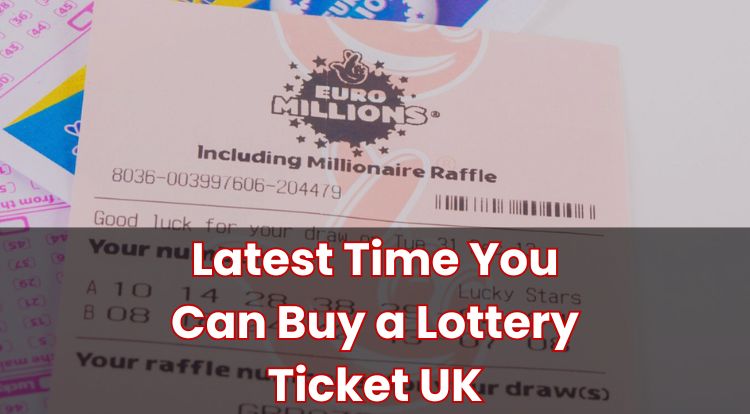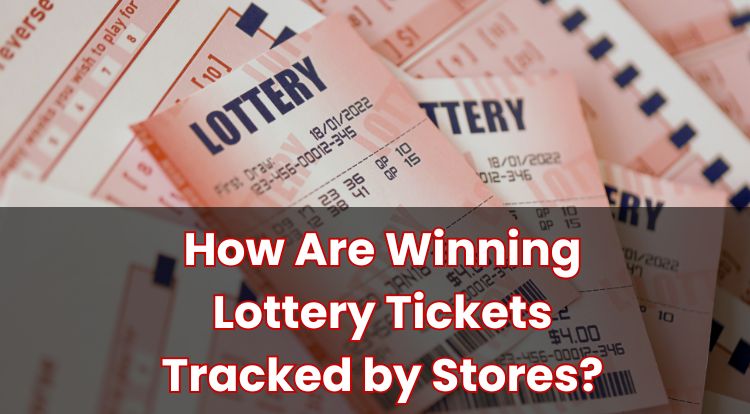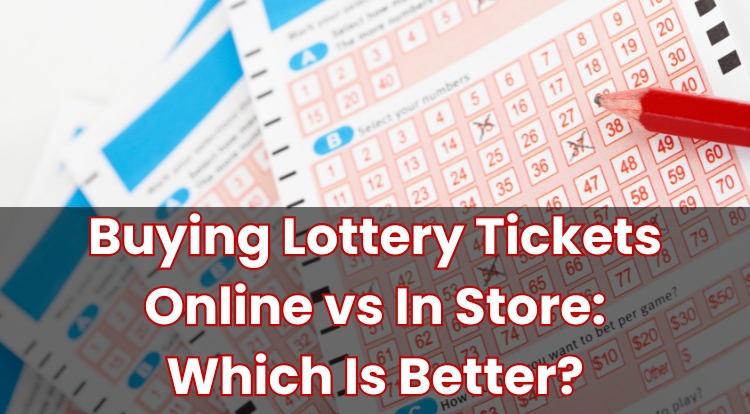How Much Do Stores Get for Selling Winning Lottery Tickets?
Have you ever wondered what happens for a shop after it sells a winning lottery ticket? Big wins often make the headlines, and it’s natural to be curious about whether the retailer sees any benefit.
A common question is whether stores receive something extra for selling a winning ticket, and if so, how much they might get. The answer may be surprising, as it is not always as straightforward as it seems.
In this blog post, we take a closer look at how much stores may receive for selling a winning lottery ticket in the UK. We also cover how general lottery retailer commissions work, what payments might be involved, and how they are processed, as well as whether these payments are subject to tax.
Read on to find out more.
Brief Introduction to Lottery Retailer Commissions
Every time a ticket is sold, the shop that sells it usually earns a small commission. This is a standard part of running a lottery outlet and helps cover the costs of selling tickets.
The operator pays a fixed percentage on each sale, regardless of the outcome of that ticket. Payments are determined by sales volume, not by any subsequent prize claims, except in cases where a retailer might qualify for a bonus under the National Lottery’s “Share the Win” initiative for high-value winning tickets with the customer’s consent.
Commission is only one part of how a shop earns from lottery sales. Additional earnings for issuing a large winning ticket may be possible, but the routine commission covers most day-to-day activity.
So what happens when a ticket sold in the shop goes on to win big? That is where occasional bonuses might come in.
Does the Store That Sells a Winning Lottery Ticket Get Money?
A shop that sells a winning lottery ticket often receives a payment from the lottery operator. This payment is separate from the prize collected by the ticket holder.
Two payments are relevant: the regular commission on ticket sales, and, in some games, an extra bonus for selling a high-value winning ticket. Smaller prizes do not always trigger a bonus, and some games do not offer one at all.
The amount and the rules sit with the operator’s policy, so not every win leads to a retailer bonus. That naturally raises the next point: is any bonus a slice of the jackpot or a set figure?
What Percentage of the Jackpot Does the Store Receive?
In the UK, stores do not receive a fixed percentage of the jackpot for selling a winning ticket. Where a retailer bonus is paid, it is a set amount determined by the operator and is not linked to the prize value.
For example, a shop selling a jackpot-winning ticket might receive a flat payment, such as £10,000, whether the jackpot is a few million or much higher. The size and availability of any bonus depend on the game and the terms in place at the time.
This approach keeps the potential for retailer rewards clear. So, how does that money actually reach the shop?
How Are Retailer Payments Processed in the UK?
In the UK, retailer payments for lottery ticket sales are organised and managed by the lottery operator. This covers both the regular commission and any eligible bonus for selling a winning ticket.
Payments are typically handled electronically on a weekly or monthly cycle and go directly to the retailer’s business bank account. Operators issue statements that break down ticket sales, commission earned, and any separate bonus.
Each transaction is recorded against the outlet’s terminal and account details so that the shop may reconcile sales and payments. Operators are required to meet UK Gambling Commission (UKGC) standards and to maintain accurate records. Those records are also important for tax, which brings us to how these payments are treated by HM Revenue & Customs (HMRC).
Do Lottery Retailers Pay Tax on Winning Ticket Commissions?
In the UK, lottery retailers are treated like any other business for tax purposes. Commission from ticket sales, along with any extra retailer bonus for selling a winning ticket, counts as trading income.
These amounts should be included in the shop’s accounts and reported under normal business rules. Keeping clear records, including operator statements and bank entries, helps ensure accurate reporting and easier reconciliation.
Retailers should follow official guidance from HMRC and seek professional advice if anything is unclear. In short, shops earn a small commission on every ticket and may receive a set bonus for issuing a major winner. They do not get a share of the jackpot, and any payments are settled and taxed as ordinary business income.
If you choose to participate in a lottery draw, always do so with responsible gambling practices in mind and never spend more than you are willing to lose. Treat playing as a form of entertainment rather than a way to make money, and set limits on both the time and money you spend.
If you feel that playing is becoming difficult to manage or affecting other parts of your life, seek support from professional resources. Help and advice are available from organisations such as GambleAware, GamCare, and the National Gambling Helpline, which provide confidential guidance and support.
*All values (Bet Levels, Maximum Wins, etc.) mentioned in relation to these games are subject to change at any time. Game features mentioned may not be available in some jurisdictions.
**The information provided in this blog is intended for educational purposes and should not be construed as betting advice or a guarantee of success. Always gamble responsibly.





